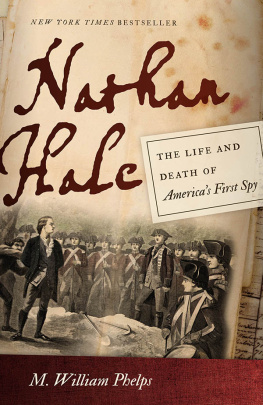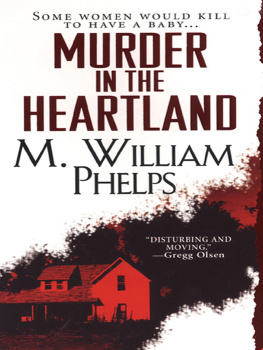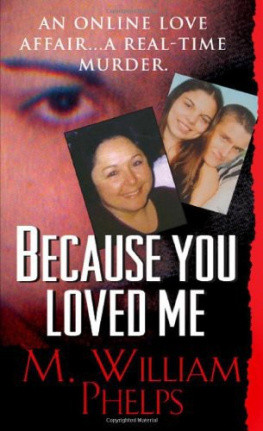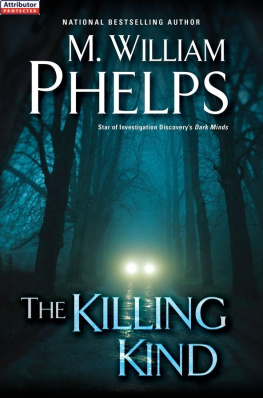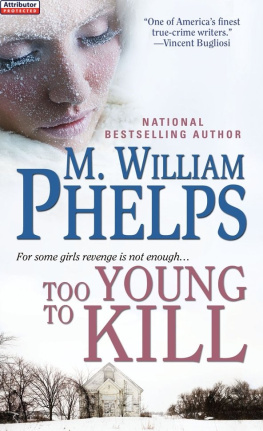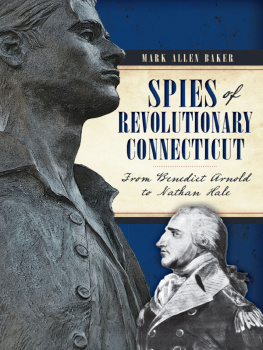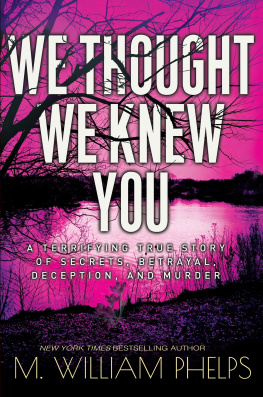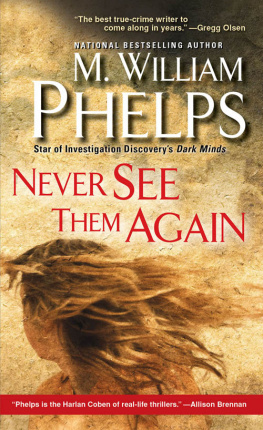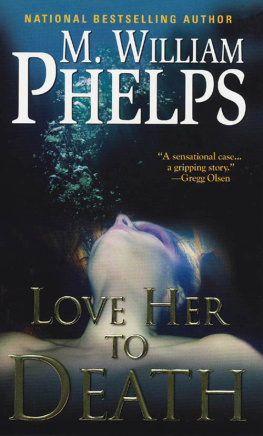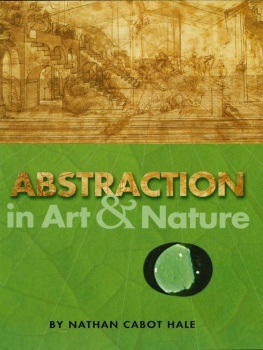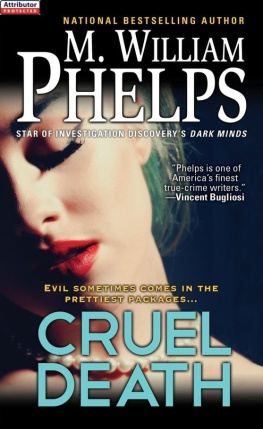M. William Phelps - Nathan Hale: The Life and Death of Americas First Spy
Here you can read online M. William Phelps - Nathan Hale: The Life and Death of Americas First Spy full text of the book (entire story) in english for free. Download pdf and epub, get meaning, cover and reviews about this ebook. year: 2014, publisher: ForeEdge from University Press of New England, genre: Non-fiction. Description of the work, (preface) as well as reviews are available. Best literature library LitArk.com created for fans of good reading and offers a wide selection of genres:
Romance novel
Science fiction
Adventure
Detective
Science
History
Home and family
Prose
Art
Politics
Computer
Non-fiction
Religion
Business
Children
Humor
Choose a favorite category and find really read worthwhile books. Enjoy immersion in the world of imagination, feel the emotions of the characters or learn something new for yourself, make an fascinating discovery.
- Book:Nathan Hale: The Life and Death of Americas First Spy
- Author:
- Publisher:ForeEdge from University Press of New England
- Genre:
- Year:2014
- Rating:4 / 5
- Favourites:Add to favourites
- Your mark:
- 80
- 1
- 2
- 3
- 4
- 5
Nathan Hale: The Life and Death of Americas First Spy: summary, description and annotation
We offer to read an annotation, description, summary or preface (depends on what the author of the book "Nathan Hale: The Life and Death of Americas First Spy" wrote himself). If you haven't found the necessary information about the book — write in the comments, we will try to find it.
M. William Phelps: author's other books
Who wrote Nathan Hale: The Life and Death of Americas First Spy? Find out the surname, the name of the author of the book and a list of all author's works by series.
Nathan Hale: The Life and Death of Americas First Spy — read online for free the complete book (whole text) full work
Below is the text of the book, divided by pages. System saving the place of the last page read, allows you to conveniently read the book "Nathan Hale: The Life and Death of Americas First Spy" online for free, without having to search again every time where you left off. Put a bookmark, and you can go to the page where you finished reading at any time.
Font size:
Interval:
Bookmark:
NATHAN HALE
The Life and Death of Americas First Spy
M. WILLIAM PHELPS
FOREEDGE
ForeEdge
An imprint of University Press of New England
www.upne.com
2008 M. William Phelps
Foreword 2008 Beverly Lucas
First ForeEdge edition 2014
All rights reserved
Manufactured in the United States of America
Paperback ISBN: 978-1-61168-767-5
Ebook ISBN: 978-1-61168-768-2
For permission to reproduce any of the material in this book, contact Permissions, University Press of New England, One Court Street, Suite 250, Lebanon NH 03766; or visit www.upne.com
This book was originally published in a cloth edition in 2008 by Thomas Dunne Books, an imprint of St. Martins Press.
Library of Congress Control Number: 2014951440
FOR GREGG OLSEN:
FRIEND, MENTOR, COLLEAGUE
FOREWORD
T ODAY NATHAN HALE IS recognized as Connecticuts state hero, known to most for his rumored last words, I only regret that I have but one life to lose for my country. Although questions and doubts may be raised about his significance in American history, Nathan will always represent the values exemplified by the words patriotism, loyalty, and self-sacrifice. And these values were not only his, but his familys, his neighbors, and his fellow colonists.
Nathans nephew David Hale Jr., cofounder of what is todays Wall Street Journal, once wrote: There is nothing romantic about the life of Nathan Hale.... He was a simple-hearted, well-educated, intelligent country youth, always doing what he thought right; and that in those days was nothing singular.
Nathan was considered a hero by many of his fellow patriots and by many authors who wrote about him for history books and novels. In the early twentieth century, George Dudley Seymour was so moved by Nathans heroism, he had statues made of him, convinced the post office to issue a stamp in his honor, and restored Nathans family homestead, which is now a museum. By the 1960s, Nathans significance and authenticity as a hero had been thrown into doubt. He was no longer included in some histories, and the bestselling Dont Know Much About History (1990) states that Hales last words are most likely an invention that has become part of the Revolution mythology.
Though his mission failed, Nathan Hales significance never hinged on whether he was an effective spy. As President Dwight Eisenhower explained at the time of the bicentennial of Hales birth, here was a supreme example of the willingness of an individual to risk death and sacrifice himself for the common good. With this sacrifice, Nathan Hale became a hero and, as such, represented the colony of Connecticuts significant contribution to the war for independence; he was willing to sacrifice himself for the beliefs that not only he held dear, but that his family, friends, neighbors, and fellow colonists cherished. For this he is a hero and represents others who fought for their beliefs and sacrificed in their own ways for Americas independence.
For this reason, Nathan Hales story should continue to be told.
BEVERLY LUCAS, CURATOR
Connecticut Landmarks
Hale Homestead Museum
Now, as for me, behold me in your hand!
Do to me according to that which is goodyea, according to that which is rightin your eyes!
Only ye surely know that, if ye are about to put me to death, then ye are surely putting innocent blood upon yourselves....
JEREMIAH 26: 1415
PROLOGUE
THUNDER OF HEAVEN
F ROM THE WESTERN FRONT of the green facing Yale Colleges Connecticut Hall, a three-story, redbrick building, one could look to the east and manage a squinted glimpse of Long Island Sound and, just over the horizon, the magnificent Atlantic Ocean. Settled in 1638 as Red Mount, New Haven was a thriving colony, steeped in maritime aesthetics and deepseated Christian values, established by its founders on the principles of community, education, economics, and, of course, religion. It was here, in the thick of the city near Chapel Street, that two teenage classmates left the Yale campus on a summer day in 1772 en route to New Haven harbor.
To passersby, the students blended into the milieu of the city as if they had lived in New Haven all their lives. But neither scholar had grown up in town. One of the boys, Nathan Hale, the son of an affluent deacon and farmer, lived sixty miles north in the hills of Connecticut. Having spent the past three years studying at Yale, Nathan held an idealistic view of the city; its tradition of political discourse and fidelity to Christianity fell right into what heindeed, nearly all colonistshad been raised to believe: that in God all things were possible.
Nathan and his classmate Isaac Gridley were headed to New Haven harbor, a bustling seaport, situated along the jagged coastline between Stamford and Saybrook. There, merchants sold colonial goodsmainly sugar, pewter, nails, timber, fishing gear, compasses, sextantsand coopers and shiphands loitered about the docks in search of work, while businessmen kept tabs on their coastal offices and warehouses. The first Puritans to settle in New Haven 150 years earlier felt there was great value in such a sprawling seaside community and hoped to monopolize what they viewed as a prominent commercial port on the East Coast. The problem became, however, that New York was but a half days sail south, Boston a days sail north. Both were larger cities, with much more to offer seafaring merchants and importers. Yet even though their immediate plan for financial success failed, the harbor prospered and sustained a growing economy over the years, providing a viable tract of land and a tenable backdrop for the neatly painted frame houses of many of the towns influencial families dotted about the ribboned countryside overlooking the harbor.
It had turned cloudy by the time seventeen-year-old Nathan and his fifteen-year-old classmate reached the shoreline. Undeterred by the gray skies above, they pushed a sloop out into the water and, with their backs to the wind, jumped aboard for what they assumed was going to be an afternoon of leisurely sailing.
But soon after their voyage began, the weather turned volatile and violent. Waves crashed up over the bow of the small sloop as Gridley, certainly worried they wouldnt make it back to shore without being swallowed up by the choppy waters, looked to Nathan for guidance and comfort.
With the confidence he had acquired while becoming one of Yales top thirteen scholars, Nathan said, I will never be drowned.
To Gridley, Nathan appeared too sure of himself, as if he knewand firmly believedthat dying in the midst of a storm at sea was not in Gods plan for him. Nathans words did little to suppress Gridleys trepidation; it thundered and lightning cracked in flashing bolts around them.
Maneuvering the vessel back to shore, Nathan explained why he was so certain they would make it in safely. He pointed to a blemish on his neck, beckoning Gridley to have a closer look.
A childhood friend of Nathans, Asher Wright, who would become his close ally and camp attendant during the Revolutionary War, later described Nathans pockmark as a large hair mole on his neck. A mole on ones neck was a sign of bad luck. If one had a hair growing from that mole, it further indicated that death by hanging was in your future.
Apparently, Nathan Hale believed it to some extentbecause as he and Gridley, surely drenched from the heavy rains, pulled the boat ashore, Nathan spoke of it again. He pointed to the slightly elevated mole on his neck and again said he knew he wasnt going to drown. Gridley wanted to know how his friend could be so certain.
I am to be hung, Nathan lamented.
Chapter 1
THE RIGHTEOUS AND PATRIOTIC MAN
T HE FIERY COLORS OF leaves burst around New England during the fall of 1769. Fifteen-year-old Enoch and fourteen-year-old Nathan straddled their horses and began what was a sixty-mile journey to New Haven. They had been lectured by their father, Richard Hale, regarding the vices of living in a city far from his supervision. Richard probably told the boys to mind their studies and seek guidance in the word of God while away from home. For Nathan and Enoch, it was the first time they had left home alone, beyond a brief visit to their uncle Strongs in Salmon Brook, or a trip into Hartford, Norwich, or Windham for supplies with their father.
Next pageFont size:
Interval:
Bookmark:
Similar books «Nathan Hale: The Life and Death of Americas First Spy»
Look at similar books to Nathan Hale: The Life and Death of Americas First Spy. We have selected literature similar in name and meaning in the hope of providing readers with more options to find new, interesting, not yet read works.
Discussion, reviews of the book Nathan Hale: The Life and Death of Americas First Spy and just readers' own opinions. Leave your comments, write what you think about the work, its meaning or the main characters. Specify what exactly you liked and what you didn't like, and why you think so.

